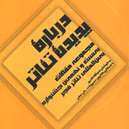Make no mistake: artists led Egypt’s Revolution 2.0, which deposed the country’s first freely elected Islamist president and the Muslim Brotherhood.
Egypt has hit the re-set button. Political reporters, world leaders and media pundits everywhere have already begun commenting on the political instability in that country. It is a complex situation and not for the naive. But they will conveniently forget the most important piece of the puzzle: the role of artists in this Summer of Mass Re-Awakening.
The military’s action to oust Morsi, a U.S.-educated religious conservative, and the Muslim Brotherhood was, in fact, but the final moving piece in Egypt’s complicated political domino. It should be remembered that this Summer of Re-Awakening actually began as a culture war. It was a fight for free expression. It was a defense on the importance of independent artists. It was a battle for Egypt’s soul.
It all began when Egyptian artists occupied the culture ministry building in Cairo. Protesting artists staged sit-ins and brought music and performance to the streets. They halted performances of plays and operas. They issued calls for support from the international world, distributing letters and videos that spread virally on the Internet.
Artists occupied the culture ministry building to demand the dismissal of the recently appointed Culture Minister Alaa Abdel-Aziz. Artists demanded a halt to what they called the takeover of Egypt’s cultural scene by the Muslim Brotherhood, the group to which the democratically elected President Mohamed Morsi is affiliated.
What had started as an act of defiance against the Egyptian culture minister then escalated in the run-up to the June 30 mass mobilization against President Morsi, the largest in that country’s history which were planned by the Tamarod campaign to remove Morsi from power. (Tamarod is a people-led, anti-dictatorship campaign for a developed Egypt.)
The artists’ sit-in was not confined to Cairo. In Alexandria and in other cities across the country, sit-ins occupied theaters and opera houses. Artists held strikes. Their aim was to demonstrate how state-owned cultural spaces can be just as effectively run by independent cultural activists and artists. These sit-ins also served as a platform for a series of discussions on culture policy and the role of Egypt’s culture ministry.
Since the occupation of the ministry began, artists have been performing in the streets or on make-shift stages in Cairo. Uyoon Al-Horreya (Eyes of Freedom) and 18 Days, two films about the Egyptian revolution, were shown, according to a TDR-The Drama Review update. In this Youtube video, posted June 11, Marimba Queen Nesma Abd El Aziz can be seen performing at a sit-in festival.
Islamists have declared ballet haraam sinful and forbidden by God (because nude bodies encourage “licentiousness”). Nevertheless, stars of the Cairo Opera Ballet, who were officially on strike, offered excerpts from the ballet Zorba the Greek. Also, the pop group Ahmed Saad gave an impromptu concert that entertained the police.
Among the demonstrators are actors Khaled El-Sawy, Mahmoud Kabeel, Lobna Abdel-Aziz, Hany Salama, Abdel-Rahman Abou-Zahra, Olfat Amr, Maha Abu Ouf, Aida Fahmi, Ahmed Bedeer; writer Mohamed El-Ghitani; film directors Khaled Youssef and Amr Abdel Aziz; pianist Mohamed Saleh; conductor and composer Hisham Gabr; harpist from the Cairo Opera Orchestra Manal Mohie El-Din; head of the Academy of Arts Sameh Mahran; former head of the Cairo Opera House Ines Abdel Dayem; Grammy award-winning sound engineer Alaa El-Kashef; pianist and arts manager Ahmed Abou-Zahra; violinist Osman El-Mahdy; principal dancer from the Cairo Opera Ballet Company Hani Hassan; and renowned theatre critic and academic Nehad Selaiha, among hundreds of others.
Egyptian Artists Spoke Out Against the Muslim Brotherhood
Egypt is deeply divided between Morsi’s Islamist supporters and a broad-based opposition, led by artists. Egypt’s writers, filmmakers, theatre makers, visual artists and performers, although they were comparatively small in size, worked to take back Egyptian culture from the Muslim Brotherhood, whom they contend have ruined the country.
Since his appointment, the culture minister Alaa Abdel-Aziz had dismissed three leading members of Egypt’s cultural scene: the head of the Cairo Opera House, Enas Abdel-Dayem; the head of the Egyptian General Book Authority, Ahmed Mujahid and Salah El-Meligy, the head of the Fine Arts Sector.
In response, Egyptian novelist Bahaa Taher said he would resign from the state-run supreme council of culture in protest. “Over the past days, the minister has dismissed many valuable, highly educated and accomplished artists and intellectuals from leading positions in Egypt’s culture scene,” Taher told a local media outlet. Taher was the winner of the 2008 International Prize for Arabic Fiction in 2008.
Egyptians artists and performers argued that Morsi’s administration was no better than the decades of dictatorship under former President Hosni Mubarak. They argued that the country’s ruling Islamist Freedom and Justice party is attempting to cement control over the direction of their artistic work.
Egyptian performers also feared budget cuts will limit the vibrancy of the country’s art scene.
The Freedom of Creativity Front, a coalition of artists supporting the sit-in, said in a June 6 statement that their rejection of the Abdel-Aziz is not personal, but in response to government policies that view the “country as spoils to be divided among its supporters and followers.”
The artists said the firings of artistic leaders of operas and theater reflect a trend toward restricting freedom of expression, as well as the government’s willingness to court religious conservatives by cracking down on methods of expression deemed “offensive” or “immoral.”
Khaled Fahmy, chair of the history department at the American University in Cairo, wrote in a June 8 Al-Ahram op-ed, “The interest of the Brotherhood in the Ministry of Culture is based on an old and long engraved belief they have; namely, that Egypt’s identity has been hijacked by a handful of Westernized intellectuals, and that the time has come for Egypt to regain its original, pristine Islamic identity.”
According to Egyptian artists, a leading figure in the Muslim Brotherhood’s Freedom and Justice Party, Isam El-�Iryan, branded a number of journalists, artists, and intellectuals “pro-Western atheists and secularists who have betrayed the religious creed of the Egyptian people” (Al-Akhbar Daily, 7 June 2013, p. 2).
The same accusation was made on Friday 7 June from the pulpit of a mosque in Madinet Nasr, Cairo. A respected journalist in Cairo Nehad Selaiha stated in an email to NYU professor Erin Mee, “This is a dangerous turn of events: such accusations can be understood by militant Islamists as a fatwa to kill �those infidels’ with impunity, thus virtually sanctioning the killing of artists and intellectuals.”
A New York Times article reported that in the city of Deir El Gabrawi, “Egypt’s prosecutors have been flooded with blasphemy complaints since 2011 as Islamists exercising their new societal clout have pushed for prosecutions and courts have handed down steep fines and prison terms for insulting religion.” Some examples cited in the Times story include:
- A Christian teacher in Luxor was fined $14,000 for allegedly insulting the Prophet Muhammad in class.
- A writer was given five years in prison for allegedly promoting atheism
- A Christian lawyer was sentenced to one year for privately saying something negative against insulting Islam.
- Religious activists have forced officials to suspend teachers and professors.
- In at least 10 cases, Christian families have been expelled from their homes after perceived insults, according to Ishaq Ibrahim of the Egyptian Initiative for Personal Rights.

International Cross-Cultural Projects Had a Role in Egypt’s Revolution 2.0
As the mass protests reached their peak on June 30, 2013, Egypt’s artists had also been in the front lines of engaging the rest of the world to embody their cause from afar. For instance, a group of Egyptian writers, poets and artists filmed a video “message from the Egyptian people to the world” and posted it on YouTube on June 26, 2013, five days before the June 30 mass protests took place.
In that video, which appears below, various young artists took turns to say that their protests are peaceful. “Egypt’s “current leaders do not represent our Islam,” they said, adding that “They do not represent our beliefs. They do not represent Egyptians.”
Another example: While many independent artists held a variety of musical events and rock performances outside the presidential palace, the Egyptian writer/director Dalia Basiouny was in Cairo marching in the protest and filming the revolution. In a live-streamed performance action called “Embodying the Revolution,” the film images Basiouny took were then streamed onto the web for one hour and projected on moving bodies at CultureHub in New York City.
CultureHub‘s mission is to provide a shared space for artists to collaborate, share ideas and create interdisciplinary works of art that explore emerging mediums and technologies. The cross-cultural project, said Basiouny and her collaborator Sarah Cameron Sunde in New York, attempts “to transcend time/space/nation, embody the revolution and stand in solidarity with the Egyptians’ struggle for peace and justice.”
Back in Cairo, the culture minister Abdel-Aziz rejected accusations that he was trying to “Islamize” the arts. He told the Muslim Brotherhood’s Arabic-language website: “This talk of ‘Islamising culture’ is a strange expression, as if it is a slur or a charge. The majority of Egyptians practise Islam.”
The opera singer Dalia Farid Fadel said that the culture minister’s argument entirely misses the point. What is at stake, she said, is “the essence of Egypt.”
“The authorities are trying to change the essence of Egypt by slowly wearing away at the diversity of our culture,” she told the Guardian. “Egypt is on the brink of bankruptcy and in this situation, cutting down on the arts can be presented as a natural choice. But we cannot afford to lose the arts, they are such a strong part of our identity as Egyptians.”
In an op-ed for CNN, Cynthia Schneider, a professor at Georgetown University and a former U.S. ambassador to the Netherlands, wrote that “artists tend to occupy the front lines against repression. So it comes as no surprise that the occupation of Egypt’s Ministry of Culture protesting the ‘Brotherhoodization’ of the ministry under the leadership of Alaa Abdel-Aziz has helped drive the planned massive demonstrations against Mohamed Morsi.”
Schneider added that “Ironically, in targeting cultural leaders, the Brotherhood has helped unify its opposition. For the artists are the canaries in the coal mine, who lead the way in questioning authority and in holding up a mirror to society. Just as with the 2011 revolution, this ‘second revolution’ began with youth activists, many of them artists, and now has spread like wildfire through the population.” -rg
To read the most current updates about how artists sparked the Egyptian Revolution 2.0, visit the Facebook page of TDR The Drama Review. TDR is a scholarly journal that focuses on performances in their social, cultural, and political contexts.

Related articles
- Military ousts Morsy in Egypt coup (news.blogs.cnn.com)
- Egypt’s Morsi Rejects 48-Hour Ultimatum (voanews.com)
- Coup D’Etat In Egypt: Military Removes President Morsi And Suspends The Constitution (forbes.com)
- Egyptian Military Ousts Morsi, Suspends Constitution (breitbart.com)
- Egypt: ‘Military coup underway’ as Mohammed Morsi deadline passes (metro.co.uk)
- Egypt’s army chief ousts Morsi (bigpondnews.com)
- Egypt’s Generals Oust Morsy (wibw.com)




